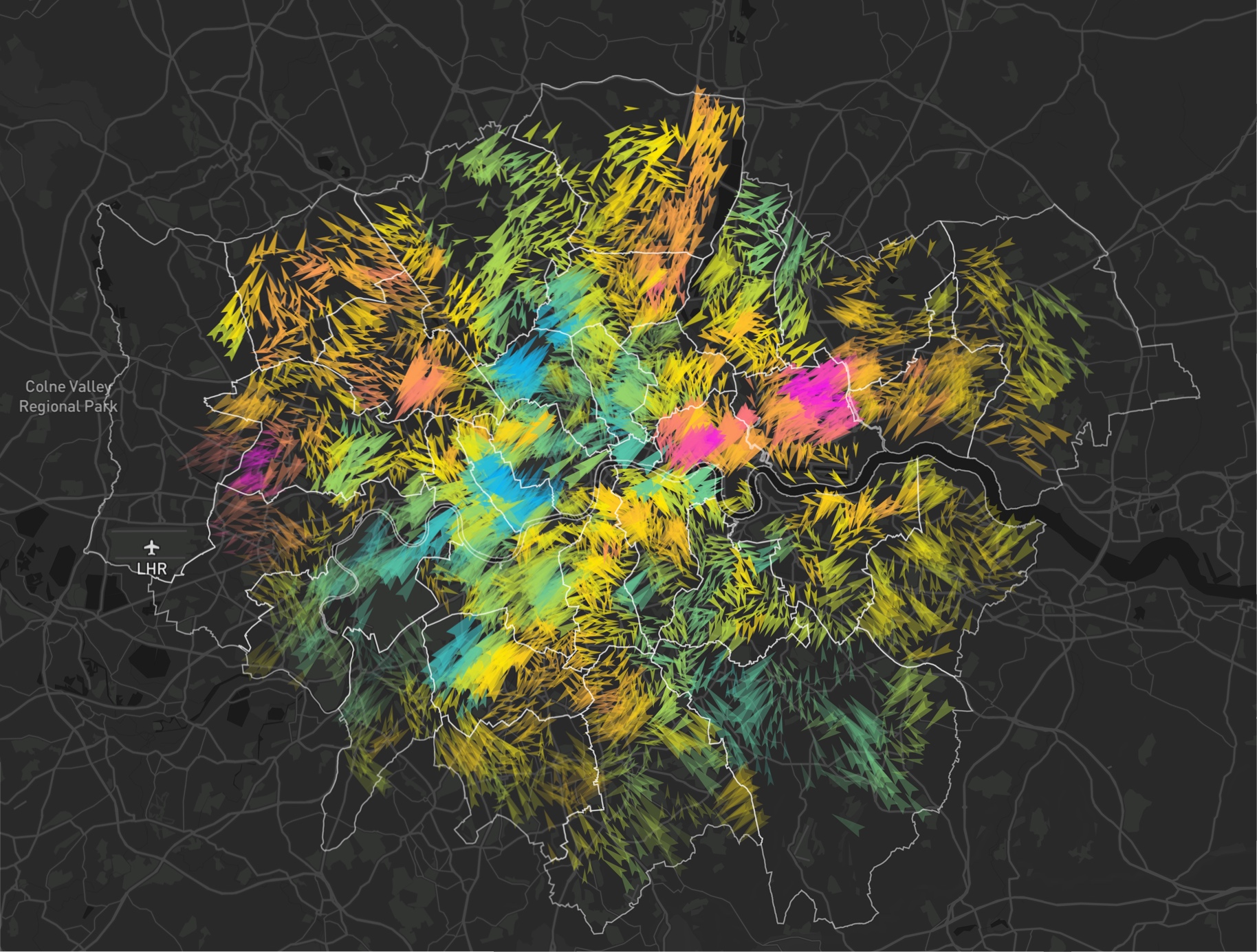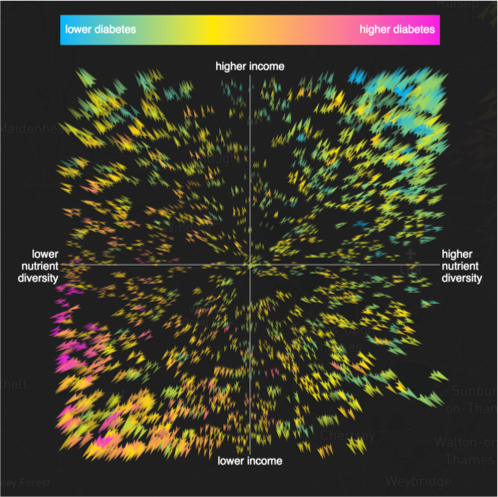In our cities, food is cheap and exercise discretionary, and health takes its toll. Half of European citizens will be obese by 2050, and obesity and its diseases are likely to reach crisis proportions. The impact of eating habits on people's health has mostly been studied using dietary surveys, which are costly and of limited scale.
To complement these surveys, we resorted to grocery fidelity cards. We used the anonymized records of 1.6B grocery items purchased by 1.6M Tesco customers in London over one whole year, and matched them with publicly available GP prescriptions. Our results suggest that, as one expects, the "trick" to not being associated with chronic diseases is eating less what we instinctively like (e.g., sugar), balancing all the nutrients, and avoiding the (big) quantities that are readily available.
More interestingly, our metrics of food consumption at neighborhood level predict the prevalence of diabetes, hypertension, and high cholesterol with an accuracy as high as 91%. Predictions are accurate even when they are based on two factors only: amount of calories, and diversity of nutrients.
Surprisingly, in terms of illnesses, socio-economic conditions matter less than food habits: socio-economically deprived areas with healthy eating habits do not tend to be associated with food-related diseases.
These results suggest that fidelity cards could be put to new uses in the near future - mining them in new ways will make it possible to track community health in real time, and at scale.
Find an interactive map here, while publications and datasets are available below.








